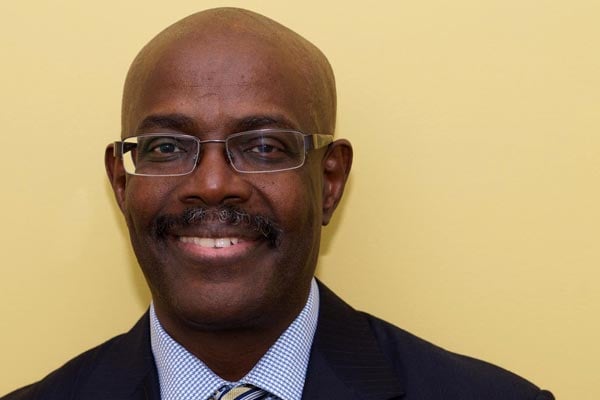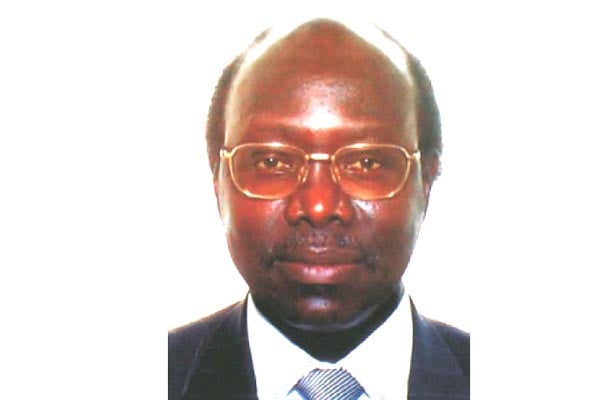Prime
Christian revival is Uganda’s only hope for redemption

Author: Muniini K Mulera. PHOTO/FILE
What you need to know:
We have done enough wailing and lamenting against the corruption and injustice of the rulers and their courtiers. It is time for us to acknowledge our personal contribution to the pandemic of corruption...
Dear Tingasiga:
My friend Edward Nobel Bisamunyu, who died two months ago, was on my mind this Easter weekend. An astute observer of humanity and the world around him, Eddie hated hypocrisy. His letters, both private and public, were hard hitting commentaries on the double standards he encountered daily.
On March 25, 2018, Eddie wrote about Christians who had deliberately engaged in overt sin while on their way to Churches near his home in Kabaare. “It’s Palm Sunday!” he wrote. “In preparation for Easter, without feeling holier than thou, I am going to write a sermon topic - just a topic - for as many churches in my area as possible.
“Muslims in Kabale, on their holy days, are the model of good behaviour. Clean, devout and well-behaved. They stand out and their manner is just one of inspiration. So, what happened to the Christians? Their manner is simply focused on theft even in the service of God. It reminds me of what a friend always says: If somebody tells me they are a Christian, I switch off my trust buttons immediately!
“I have been shocked today by the corruption to which people will go to obtain a branch of pine trees as palm trees. Today, Christians in Kabale, both Roman Catholic and Protestants of all shades, well-dressed, clean and polished shoes, flocked into my compound without permission or asking to break branches off my trees. Violating a gate that’s not locked is just routine work for them. They break large branches and leave trees looking mangled with the ease of a thief who is used to his territory of operations as they go to church.
“What sort of church is it that encourages its members to act as thieves in front of their children, some of whom were doing the same? How dare you steal from a household with ill-will and mean intentions to go praise God with joy and good intentions? There were long hands crossing a hedge to pull down a tall pine tree and hack off its branches as if God would not possibly care about it.
“When I was a young child of five, we lived in a rural area called Bukinda. My mother warned us against joining the company of children whose greatest aim each day was to steal sweet potatoes from neighbours’ gardens. When you are young and in the rural area here, you learn that “okutoga” or stealing food or violating any plant will make you equal to loathsome anti-social children in the West. Yet, today, well-dressed adults with jobs somewhere were the menace.”
I do not know whether Eddie wrote his planned topic for a sermon. What I know is that he continued to tell anyone who allowed him to do so that Uganda was doomed if corruption and all forms of dishonesty continued to flourish. I can only imagine what he would have written to me about the latest reports of continuing looting of the land by the custodians of the public’s finances, and the role of so-called ordinary citizens in the normalization of illegal access to other people’s property.
My own experience mirrors Eddie’s to the letter. My wife and I own small parcels of land in Kigyezi, on which we have attempted to grow trees. To protect some of the plantations in Kabaare town, we spent a significant amount of money fencing the properties. The wire fences lasted a few months, pulled down by unknown humans, probably herdsmen who considered our greenspaces perfect pastures for their animals.
Thieves harvested many trees without apparent difficulty. A man whom we paid to prune a tree plantation by cutting the small ones and to also keep the proceeds from the sale of those small trees reversed our instructions to him. He harvested the larger trees and sold them at a tidy price and kept the money. We retired him from his employment.
Our experiences pale in comparison with the loss of vast amounts of money, land, houses and motor vehicles suffered by Diaspora Ugandans at the hands of their relatives. Some of the fraudsters have been active members of the churches, with some enjoying honour as canons in the Anglican Church. Some are celebrated balokole (born again Christians), held up by their churches as role models of moral uprightness.
Without doubt, the ruling regime in Uganda has founded its legitimacy and survival on a stunningly corrupt kleptocracy that has been justifiably condemned by scribes and other citizens of goodwill. However, the rot from the top has seeped throughout the entire body of the land, with the smallest person on the national tree reaching across to pick the pockets of their neighbour. It is a tragic state where brother robs brother, sister robs sister, child robs parent, parent robs child, pastor fleeces congregation, all the while singing Tukutendereza (praise the Lord) and celebrating the birth, death and resurrection of our Saviour Jesus Christ.
This religious ritualism and demonstrative prayer and worship is very tiresome to the Lord. In Isaiah 1:10-20, the Lord told the people and rulers of Judah and Jerusalem that He hated their hypocrisy. When we spread out our hands in prayer, He hides His eyes from us. “Even when you offer many prayers, I am not listening,” says the Lord.
There is an urgent need for Christian revival in Uganda, for the Lord takes no pleasure in the rituals and offerings of people who are unrepentant. He asks us to wash and make ourselves clean. “Take your evil deeds out of my sight; stop doing wrong” says the Lord. Clearly it is a choice we must consciously make.
As always, the Lord is happy to forgive us and spare us the continued agony that has Uganda in its grip. “But if you resist and rebel,” the Lord says through Isaiah, “you will be devoured by the sword.”
We have done enough wailing and lamenting against the corruption and injustice of the rulers and their courtiers. It is time for us to acknowledge our personal contribution to the pandemic of corruption, including fraudulent elections, receipt of stolen or self-awarded money from politicians, robbing relatives, friends, neighbours and strangers, giving chai (bribes) to public servants, and all manner of illegality and immorality that has sucked life out of our shared country.
The Lord is ready to redeem our land, but only if we abandon hypocritical ritualism and embrace the salvation and transformation that is ours by the grace of the Lord whose death and resurrection we celebrated this past weekend.
Muniini K. Mulera is Ugandan-Canadian social and political observer.




